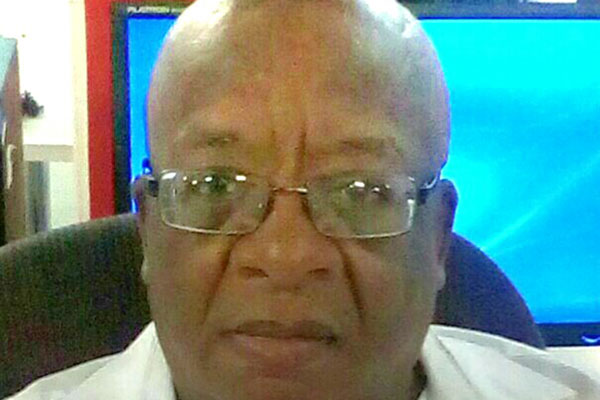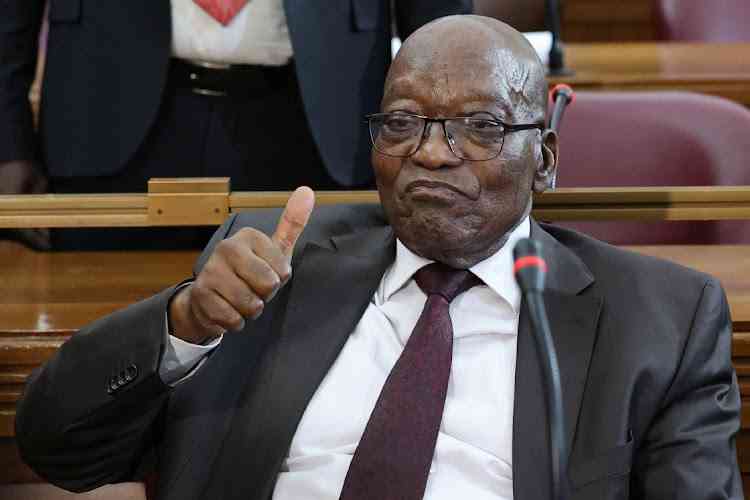
Is pragmatism beginning to prevail in opposition circles?I ask because some politicians are beginning to speak the practical language of politics — and politics is about the people — not their own detached language.
BY CONWAY TUTANI
In a report this week, it was quite refreshing and instructive to read these words from People’s Democratic Party (PDP) spokesperson, Jacob Mafume: “What has changed? I have changed. I have looked at our options [and come to the conclusion that MDC-T leader Morgan] Tsvangirai is the best foot forward (to dislodge President Robert Mugabe in next year’s elections). We need others, but he shall be the arrowhead, period.”
This should not be taken as an excuse to totally sweep under the carpet Tsvangirai’s serious health issues with even his family reportedly “seriously considering persuading him into retirement”. This has to be addressed primarily within the MDC-T itself with the urgency that it demands, but not solely within the MDC-T as other political parties are now stakeholders in the expanded MDC Alliance. So, in the circumstances, MDC-T spokesperson, Obert Gutu’s labelling as “saboteurs” those party members calling for Tsvangirai to step down is misplaced bravado.
Said Gutu: “The MDC has one leader and that is Morgan Tsvangirai. He will be our presidential candidate next year. Anybody dreaming otherwise is as good as whistling in the graveyard.” Gutu, you can do better than that. Now is the time to reconfigure around Tsvangirai’s health issues and not pretend as if nothing has changed when things have changed and are changing.
But what is auspicious is the changed tone in the opposition ranks. They are now not missing the forest for the trees. They now see the bigger picture that, as Mafume said, “Mugabe is the enemy, Tsvangirai is not the enemy”.
More than ever, we need such pragmatism, maturity, restraint, sobriety and holistic vision from politicians, not, for instance, drama queens like MDC Proportional Representation MP Priscilla Misihairabwi-Mushonga, who seems to be self-occupied with her pet projects that she would rather have everything else put on hold — including the coalition — to push for a feminist front when sexism is far from the main issue in Zimbabwe even among women themselves, in the same way that Tsvangirai is not the enemy, but Mugabe is, as Mafume has acknowledged.
Misihairabwi-Mushonga’s exaggerated and overly emotional reactions to events or situations detract from the solution to the problem. Her tendency to blow things out of proportion is legendary. Her claim that 76% of MPs are on HIV treatment is just unbelievable when the national prevalence rate was never higher than 40% of the country’s population at the peak period of infection; and also when the current prevalence rate is 13,7%. Is she suggesting that MPs are a higher risk group than the so-called sex workers? And did she have to bring handcuffs into the National Assembly to illustrate marginalisation? That is kindergarten politics, which the opposition is, to its immense credit, discarding. You cannot misrelate, misinterpret and misrender more than that.
- Chamisa under fire over US$120K donation
- Mavhunga puts DeMbare into Chibuku quarterfinals
- Pension funds bet on Cabora Bassa oilfields
- Councils defy govt fire tender directive
Keep Reading
This brings us to the next point: Serious politicians must listen more to the people than some overrated and often misleading intellectual advice. An intellectual’s work begins and ends with ideas, not the practical application of ideas to real world problems. In his book Intellectuals and Society, African-American economist and political philosopher Thomas Sowell says that intellectuals often rely heavily on what he calls “verbal virtuosity” — clever phrasing, witty quotes, sneering asides, name-calling, etc, which Misihairabwi-Mushonga is good at — to substitute for evidence, logic and analysis.
Other tactics of “verbal virtuosity” include dismissing opposing ideas as simplistic, portraying those making opposing arguments as morally unworthy, invoking “rights”, which have no legal basis, vague calls for “change”, and reliance on the abstract versus the concrete. We had this from one such Zimbabwean intellectual, Brian Kagoro, who was quoted by a local think-thank, Research and Advocacy Unit, recently giving “one of the reasons the opposition has failed to take over power” as being “a crisis of leadership and followership: Leaders with power have no ideas and those with ideas have no power.” Does this amount to much beyond being “clever phrasing”? Sowell argues that intellectuals usually (I will say “invariably”) consider themselves as “anointed”, or as endowed with superior intellect or insight with which to guide the masses and those who have authority over them. And that intellectuals show a marked preference for third parties, working outside the established power structures and applying what is presumed to be superior insight over the masses and their chosen leaders. Well, well, it’s like Sowell has pinpointed Zimbabwe, where intellectuals have been calling for “a third way”, demeaning and completely writing off the mainstream opposition and, lately, campaigning for some transitional authority.
PDP leader Tendai Biti at some time cottoned on to these “intellectual ideas” and launched his party as being made up of “thought leaders”, but is now back in the real political world, on terra firma, where he started, after signing on to the MDC Alliance. His sojourn into intellectual politics, it must be said, diminished his political authority. Elitist politics does not work.
Remember when Tafataona Mahoso masqueraded as an economics expert calling for the return of the worthless Zimbabwean dollar? Well, there are many like him across the political divide. Intellectuals normally have thorough knowledge in their areas of expertise, but outside these fields, they can be as uninformed as the average person. But too often, Sowell argues, this does not stop them from attempting to influence public opinion in areas where they are not fully qualified, as Mahoso showed.
Sowell observes that this has often resulted in disaster, where intellectuals have been allowed “undue influence” with politicians hesitant to take certain approaches to problem-solving. This undue influence has crippled the opposition in Zimbabwe.
People should desist from this tendency of being over-awed and enchanted by the so-called “big brains” because there are local levels of knowledge, which are more relevant and applicable to their situation; in other words, local levels of knowledge are situation-specific.
Now that the main opposition figures are beginning to find each other again speaking the same language, they should go ahead with their plans without submitting to undue outside influence from any quarter.











